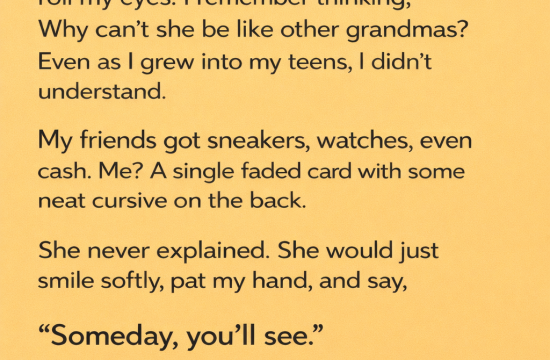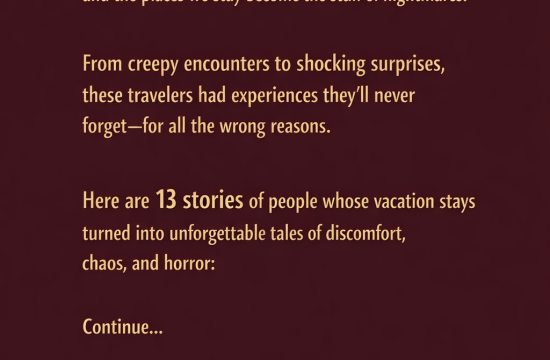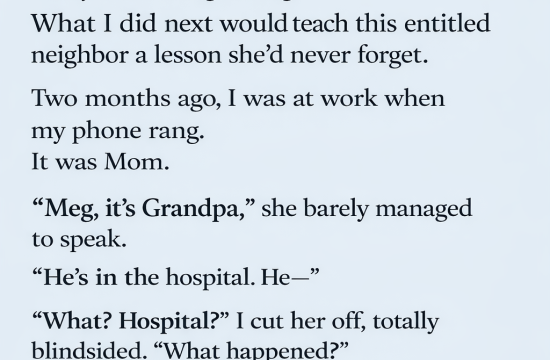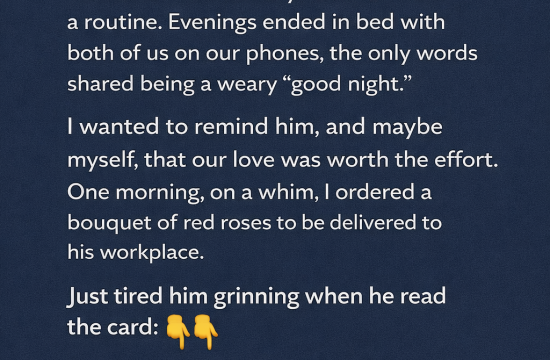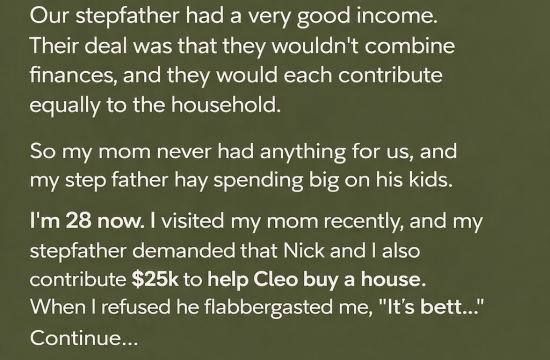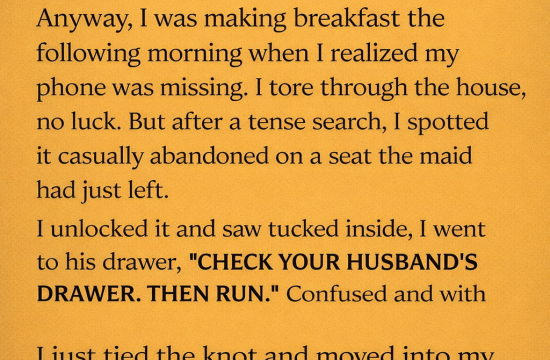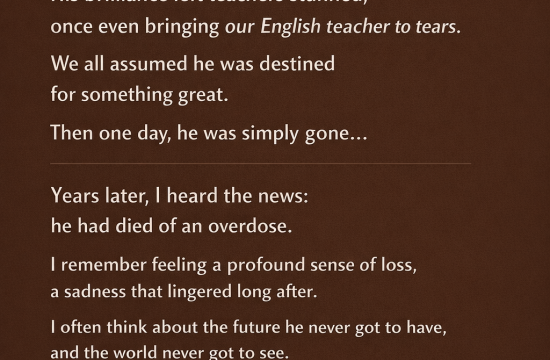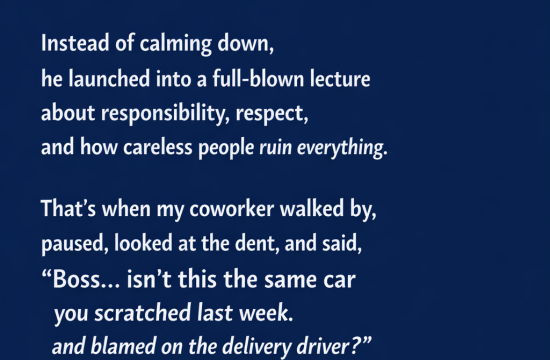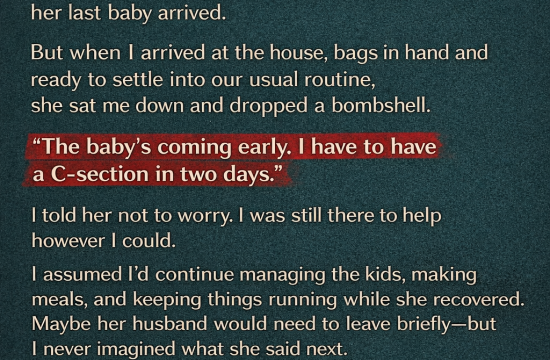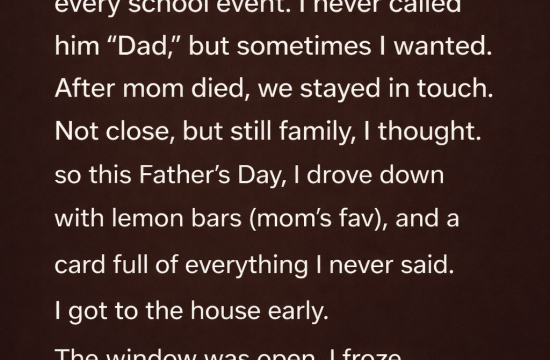After 20 years together, I left my cheating ex. He married the other woman soon after. I moved on, had a daughter, and ignored his texts. Months later, he died in a car crash—and left me his $700,000 estate. His wife demanded the money, but then I received a shocking letter from him.
When the letter arrived, it looked old and worn, as if it had been carried around in a pocket for months before ever being mailed. The envelope was yellowed and soft at the edges, with my name—Mirabel—written in the same messy handwriting I once found charming, the loops slightly smudged just like they used to be when he wrote birthday cards.
My hands trembled as I slid my finger under the seal.
I hadn’t let myself think of Ziven in weeks. I had buried the memories of the good and the bad, locking them away because remembering hurt too much. But the moment I saw his name on the bottom of that letter—messy, uneven, familiar—the grief, the anger, and the heartbreak I’d spent years suppressing surged back like a tidal wave.
His letter wasn’t the shallow, empty apology he once fed me after I caught him cheating. It was raw. Honest. Broken.
He admitted he’d destroyed me when he left me for Thalia, the woman he’d been seeing behind my back.
He confessed that even after marrying her, he couldn’t stop thinking about me.
He said guilt had become a shadow following him everywhere.
That he wanted to fix things but didn’t know how.
That he had been a coward… right until the end.
And then came the line I read at least a dozen times:
“If you’re reading this, I’m gone. Please believe me when I say the money is yours. It’s the only apology I have left.”
It should have been simple. His will named me as his sole beneficiary. But of course, Thalia had her own version of justice.
She showed up two days later. Her eyes were swollen and red, but her voice cut like glass.
“You don’t deserve a cent,” she spat. “You were the past. I was his wife. That money belongs to me.”
I nearly laughed at the irony, but my four-year-old daughter, Elowen, stood behind me clutching her stuffed rabbit with wide, frightened eyes. I swallowed my anger.
“We’ll let the lawyers handle it,” I told her calmly, shutting the door before my composure cracked.
A week later, my lawyer confirmed the will was unshakeable. Legally, the estate was mine.
But Thalia filed a lawsuit anyway—accusing me of manipulation, insisting I must have pressured him, painting herself as the grieving widow and me as the heartless ex.
Those months were the worst. Between long shifts at work, raising Elowen, and drowning in legal fees, I felt like I was being slowly crushed. Some nights, I stared at the ceiling and wondered if it would be easier to give up the money altogether, just to end the nightmare.
And then the call came.
A quiet male voice introduced himself as Oren—Ziven’s half-brother. I never knew Ziven had a half-brother.
“I think I can help you,” he said gently. “I know why he left you the estate.”
We met in a small café downtown. Oren looked like Ziven in a rougher, sadder mirror—same jawline, same dark eyes, but tired in a way that went beyond sleep.
He told me that months before the crash, Ziven had broken down to him.
He had been miserable with Thalia.
Trapped.
Regretful.
Consumed with guilt.
He said Ziven had planned to leave her, to come to me—not to rekindle anything, but to apologize properly, to take responsibility, to explain how lost he had been.
It wasn’t the fairy tale reconciliation I once fantasized about, but hearing it finally gave me the closure I had craved for years.
Oren testified in court. His words were blunt, painful, and true.
Thalia’s lawyer painted me as a conniving vulture preying on tragedy. But Oren’s testimony—late-night confessions, regret-filled messages, emotional collapse—shredded her narrative.
When the judge finally read the verdict, my breath caught.
The will was valid. The estate was mine.
Thalia stormed out of the courtroom, her heels echoing down the hall like gunshots. I didn’t feel victorious. I didn’t feel rich. I just felt… weightless. As though a decade of pain had been exhaled at last.
That night, I sat at the kitchen table with Elowen. She swung her legs while eating apple slices. I told her the money was ours now, that we’d use it to build a safe life, a good life, maybe even help others. She didn’t understand much, but she lit up when I promised her a swing set for the backyard.
I thought the ordeal was finally over.
Two weeks later, a new letter arrived.
From Thalia.
Her handwriting was shaky. She apologized—not for the lawsuit, not for the nastiness, but for everything. She told me she had discovered she was pregnant shortly before the crash, and fear had twisted her grief into cruelty.
She was alone. Terrified. Bitter. And completely overwhelmed.
For a moment, I felt anger flare inside me. But then I remembered being her—blindsided, humiliated, broken.
I called her.
We talked for hours. She cried. I cried. She told me about complications with the pregnancy, about feeling abandoned by the world, about how jealousy had turned her into someone she didn’t recognize.
Slowly, the anger inside me unraveled.
We met a week later. She brought a tiny ultrasound picture, her hands trembling as she passed it to me. I brought Elowen, who offered Thalia her stuffed rabbit for comfort.
Over time, our conversations turned into understanding, understanding into trust, and trust—shockingly—into an unlikely friendship.
When her son Lior was born, I stood outside the delivery room. And when she placed him in my arms, tiny and warm and smelling of milk, I felt a surge of love—not for Ziven, but for the innocent new life who carried no blame for the chaos surrounding him.
I set aside a portion of the estate for him.
Thalia refused. I insisted.
It wasn’t charity.
It was family.
With the rest of the money, I bought a small home in a quiet neighborhood for Elowen and me. Then I finally opened my dream bakery—Elowen’s Oven.
It wasn’t just a business. It became a sanctuary.
People walked in for pastries and left with warmth. One afternoon, a woman came in with her teenage daughter, quietly escaping an abusive home. She whispered that she needed a job, anything. I hired her on the spot.
Watching her slowly rediscover joy reminded me why rebuilding matters—why kindness matters.
Elowen loved helping after school, handing out cookies and telling customers, “My mom made this place. She made it all herself.” Every time, my heart swelled.
Thalia visited often, bringing baby Lior. Elowen and Lior played together in the kids’ corner, laughing like siblings brought together by fate’s strangest twist.
And one day, watching them chase each other between the tables, I realized something:
We weren’t the family any of us imagined.
But we were a family nonetheless.
Sometimes I still think of Ziven—not with rage, but with a quiet acceptance. His betrayal shattered my life. His death forced me to rebuild it.
But in the wreckage, I found strength, forgiveness, and a future I never saw coming.
Forgiveness isn’t about erasing the past.
It’s about freeing yourself to live again.
In the end, this wasn’t a story about money at all.
It was a story about love, loss, redemption, and the unexpected beauty that grows from broken places.
So if you’re standing in the ruins of heartbreak—hold on.
One day, you’ll look back and realize the truth:
Your pain didn’t destroy you.
It rebuilt you.


